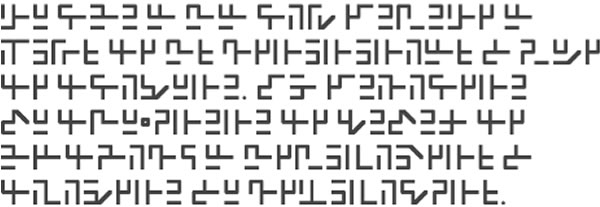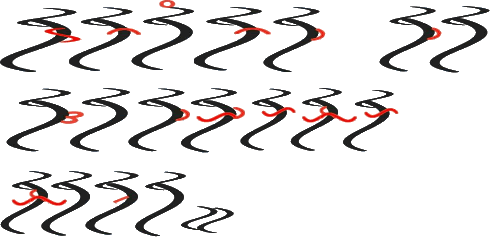Podcast: Play in new window | Download
Here’s the latest news from the world of Omniglot.
There are new language pages about:
- Chayuco Mixtec (tyehen ñi), a Mixtecan language spoken in Oaxaca in southern Mexico.
- Anii, a Kwa language spoken mainly in Benin, and also in Togo and Ghana.
- Hindko (ہندکو), a Northwestern Lahnda language spoken in the northwest of Pakistan.
New constructed script: Sulat Hiligaynon, which was invented by Julius Alfred Cordova as alternative to write Hiligaynon, which is spoken in the Western Visayas region of the Philippines.

New adapted script: Bhalabali (ᬪᬮᬩᬮᬶ), which is a way to write Zulu with the Balinese script devised by Allion Powell.

New constructed script: Machaq Aymar, which was created by TheDankBoi69 as an alternative way to write Aymara, a language spoken mainly in Bolivia and Peru.

New constructed language: Anglish, a version of English with words borrowed from other languages replaced by words from native roots.
All werely beings are born free and alike in worthiness and rights. They are gifted with reðe and inwit and should behave towards one another in a mindset of brotherhood.
There are new numbers pages in:
- Anii, a Kwa language spoken mainly in Benin, and also in Togo and Ghana.
- Chayuco Mixtec (tyehen ñi), a Mixtecan language spoken in Oaxaca in southern Mexico.
- Chamorro (Finu’ Chamoru), a Malayo-Polynesian language spoken in Guam and in the Northern Mariana Islands.
On the Omniglot blog this week we’re having some Musical Fun with the Japanese word 曲 (kyoku), which means a tune or melody, and also enjoyment, fun, interest or pleasure, and there’s the usual Language Quiz. See if you can guess what language this is:
Here’s a clue: this language is spoken in Mexico.
The mystery language in last week’s language quiz was
Puyuma (Pinuyumayan), a Formosan language spoken in Taitung County in the southeast of Taiwan.
In this week’s Adventure in Etymology we’re unwrapping the origins of the word Bandana, snd discovering links to words like band, bend, bind, bond and tulip.
On the Celtiadur blog there are new post about words for Grave Ditches and related things in Celtic languages.
There’s a new Celtic Pathways podcast about words for Bulls and related beasts in Celtic languages.
For more Omniglot News see:
https://www.omniglot.com/news/
https://twitter.com/Omniglossia
https://www.facebook.com/groups/omniglot/
https://www.facebook.com/Omniglot-100430558332117
You can also listen to this podcast on: Apple Podcasts, Amazon Music, Stitcher, TuneIn, Podchaser, PlayerFM or podtail.
If you would like to support this podcast, you can make a donation via PayPal or Patreon, or contribute to Omniglot in other ways.












